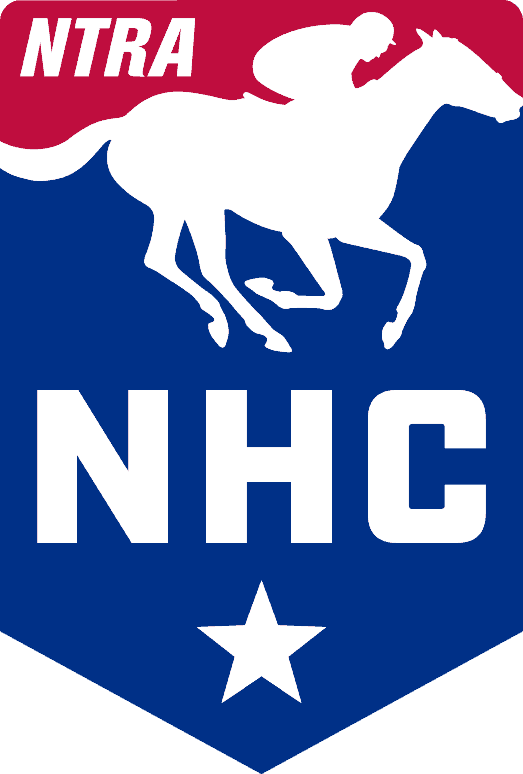Contact: Communications@NTRA.com
OSCAR-WINNING SCREENWRITER ERIC ROTH ON HANDICAPPING ON HANDICAPPING
Screenwriter Eric Roth has five Academy Award nominations to his name, including a win in the Best Adapted Screenplay category for Forrest Gump, which also won Best Picture and appears on countless lists of history’s top 100 films. Roth’s other film credits include such hits as The Horse Whisperer, Ali, Munich, The Curious Case of Benjamin Button, Extremely Loud & Incredibly Close, and A Star Is Born. He also wrote what would be the final episode of Luck, the acclaimed but ill-fated HBO series set in the worlds of Thoroughbred racing and gambling.
“I can’t say I’m a great handicapper; I’m pretty good,” Roth said in what might be considered an understatement for someone with four NHC appearances.
Roth has followed racing his entire life, since his grandfather took him along to Aqueduct and Belmont while growing up in Bedford-Stuyvesant, Brooklyn. He has been a regular at Santa Anita and Del Mar for decades since moving to California. His NHC success has been limited, according to his telling, because he prefers multi-race wagers.
“Some of these guys are ridiculous; I’m just not as good at this [contest play],” he said. “I don’t have any computer wackadoos or anything. I’m a rolling bet player. I play Pick Fives every day. That’s my life.”
Roth qualified this year via XpressBet.com after striking with an unlikely trifecta in the last race of a tournament.
“I [crapped] on myself, so to speak,” he said. “I was way behind and hit some trifecta that came back for $10,000 or something like that.”
Roth loves racetracks, he said, “because my friends are there and nobody cares what I do.” The “racing subculture,” as Roth referred to it, has been known to inform his writing and will for as long as tracks continue to attract the kinds of characters you don’t find anywhere else.
“Like [Thursday], we went to Caesars to bet a few more races and I saw an old friend,” Roth said. “He used to be kind of a womanizer, and I asked him, ‘How you doing?’ And he said, ‘I still have a lot of lead in my pencil but I have nobody to write to.’ I wrote that down right away because that will appear in one of my movies.”
EARLY RISERS HAVE THEIR ROUTINES AT THE NHC
Day 2 of the 22nd National Horseplayers Championship began with the first race at 8:35 a.m., but a few early risers took their seats when the doors opened in the Bally’s Event Center in Las Vegas at 6 a.m. Saturday. Brendan Fay, a recently retired dentist from Maryland, who was tied for 11th place after the first day of competition, was one of the first to arrive.
“Breakfast at 3 a.m.,” was Fay’s pointed description of how his day began. “I’m an early riser and I like to stay on East Coast time. Breakfast in the Events Center for the more than 450 players entered in NHC2021 didn’t begin until 7 a.m. “That’s like lunch for me,” Fay added.
Fay likes to take stabs betting younger horses making first starts on turf or route races. He took a good jab on Day 1 in the Fleet Indian Stakes at Saratoga, cashing $28.40 on the 3-year-old filly Byhubbyhellomoney.
Fay got interested in racing playing the Middle Atlantic tracks with his grandparents. “My grandmother brought me to the track when I was a kid. They babysat me, taking me to Delaware Park.”
Fay cashed his first big ticket on Black Tie Affair in the 1991 Breeders’ Cup Classic.
***
Greg Bettinelli, of Santa Monica, California, playing in his first NHC, got an early start when he competed in the NHC Last Chance/First Chance contest on Thursday at Bally’s Las Vegas. “Because the number of races to handicap is so overwhelming, I decided to get up early on Thursday and on Friday as well.” On Friday’s first day of NHC2021, Bettinelli pulled in Leadville ($43.40) at Golden Gate Fields and Kuora ($27.80) at Del Mar to finish in 19th place.
As a youngster, Bettinelli was an usher at the Santa Rosa Fair, where he sold his picks on the races to people who sat in his section. He also worked at Santa Anita Park 30 years ago. Today, he is a venture capitalist investing in young companies. “Racing is the only thing that I still use paper,” Bettinelli said as he shuffled his handicapping work on the table in front of him.
In establishing himself as a horseplayer, Bettinelli figured out a winning strategy in the mid-1990s by betting newly turned 4-year-olds, who had already faced older horses in their 3-year-old seasons. It was named “The Bettinelli Angle” by West Coast handicapper and commentator Tom Quigley. “To this date,” Bettinelli declared, “it still works.
###
